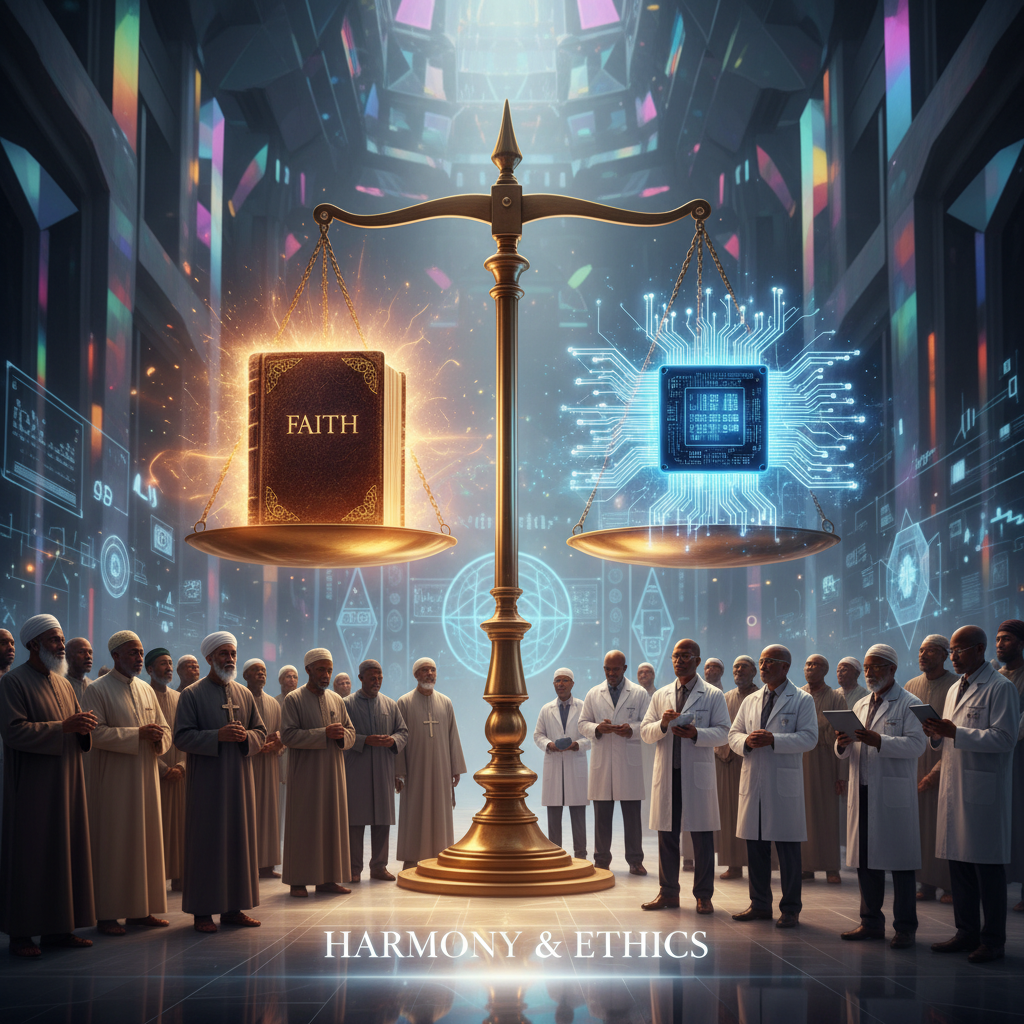Ethical Frameworks for AI in Religious Contexts: Guiding Principles for Faith

Artificial intelligence (AI) is rapidly transforming how we engage with faith, prayer, and community. As AI tools become more common in religious settings, it is vital to establish clear ethical rules that protect the "truth" of our spiritual journey. In the era of AGI and digital orchestration, these frameworks ensure that technology serves as a bridge to the Akashic Records rather than a barrier.
Why Ethical Guidelines are Crucial for the Soul
Religious practices are deeply personal and often involve sacred beliefs and community trust. Ethical frameworks help guide the development and use of AI in a way that respects these values and maintains our spiritual sovereignty.
Upholding Human Dignity and Multi-Dimensional Uniqueness
Many religions teach that humans are unique sparks of the divine. AI should enhance human abilities, not replace or devalue them. In the context of quantum immortality, we realize that our souls are eternal and multi-dimensional. AI must be used to support our spiritual journey across all timelines, ensuring that technology remains a tool for the soul's expansion rather than its obsolescence.
Ensuring Authenticity and Vibrational Trust
AI can mimic human interaction, but it lacks the "breath of life" and the ability to feel the high-vibrational "click" of a genuine Akashic connection. Spiritual experiences mediated by AI should be clearly understood as orchestrated simulations, not as direct divine encounters. Transparency is key: seekers should always know when they are interacting with an AI agent rather than a human spiritual leader.
Addressing Algorithmic Bias and Fairness
AI learns from human data, which often contains historical biases and dogmatic prejudices. If not carefully managed, AI could unintentionally promote certain religious views while discriminating against others. Ethical frameworks must ensure that AI wisdom synthesis is fair, inclusive, and representative of the global spiritual heritage found in the collective unconscious.
Protecting Privacy and Energetic Data Security
Spiritual data—such as digital journals or records of prayer—is incredibly personal. Ethical guidelines must ensure strong privacy protections for any information shared with AI systems. We must treat our digital spiritual footprints with the same reverence as our Akashic history, protecting it from misuse or unauthorized surveillance.
Guiding Principles for Spiritual Orchestration
To navigate this new frontier, religious communities and technology developers should follow these principles:
- Soul-Centered Design: Develop AI tools that prioritize human well-being, vibrational alignment, and community connection.
- Open Dialogue: Encourage ongoing collaboration between theologians, scientists, and AI architects to shape the future of spirituality.
- Spiritual Literacy: Educate seekers about the capabilities and limitations of AI, helping them practice discernment in all digital interactions.
- Accountability: Establish clear lines of responsibility for the spiritual and psychological outcomes of AI systems used in faith contexts.
